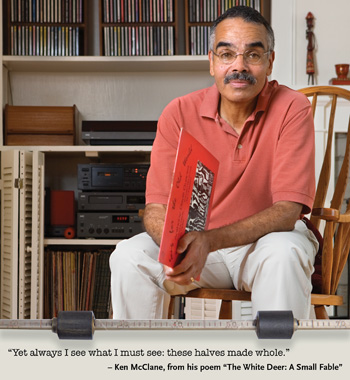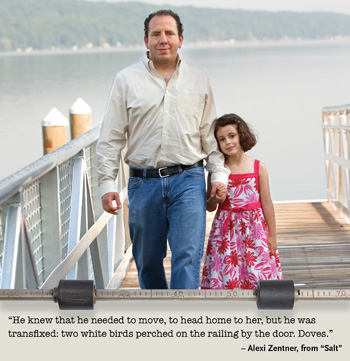COVER STORY
Why creative writing is a force on campus: Maintaining a balance between 'the mind and the heart' through storytelling
(Page 4 of 7)
The Cornell mystique
Cornell's highly regarded creative writing program, housed in the English department, can point to its storied legacy and to its current Pulitzer and MacArthur winners, its best-sellers and critics' darlings. In fact, the only two women U.S. Nobel laureates in literature, Pearl S. Buck and Toni Morrison, earned their master's degrees in English at Cornell.
Luminaries of contemporary literature associated with Cornell -- although not necessarily associated with the creative writing program -- include Kurt Vonnegut, Thomas Pynchon, William Gass, Alison Lurie, E.B. White, William Vollmann, Lorrie Moore, W.D. Snodgrass and Vladimir Nabokov, who while teaching at Cornell wrote the modern classic "Lolita."
The legacy of Cornell's greatest writers can be daunting, but it's also an inspiration, Lennon says. "You want to measure up. You're not going to be as good as Nabokov, but you want to try as hard as you can."
Morgan joined the Cornell faculty in 1971 to fill in for poet A.R. Ammons. McClane was a student in Morgan's first class, and he also taught fellow creative writing faculty member Alice Fulton, MFA '82, the Ann S. Bowers Professor of English, a poet and short story writer. In 2000 Oprah Winfrey selected Morgan's novel "Gap Creek" for her book club, launching his book onto best-seller lists.
Alexi Zentner, MFA '08, is on his way to his own version of success. He came to the program at age 32, married and with two children, after working as a newspaper reporter. He landed at Cornell based on a simple criterion: He applied only to schools whose faculty wrote books he admired.
"It was a huge deal to me to be part of a community where writing is taken seriously and you could say, 'I'm a writer' and live that life," Zentner says. "As much as I believe writing fiction is an art, there's no hocus-pocus. It's mostly about getting your butt in the chair and writing. I became a writer when I realized the difference between writing and working at writing. Talent isn't really a precious commodity. You need to combine talent with work."
Despite its decades-long track record of minting acclaimed writers, Cornell has never had a "house style." Faculty members strenuously avoid any attempt to create clones of themselves. "The things that make a writer excellent have to come from that person, and we strive to help students develop that part of themselves," Lennon says.

